hospital
Latest
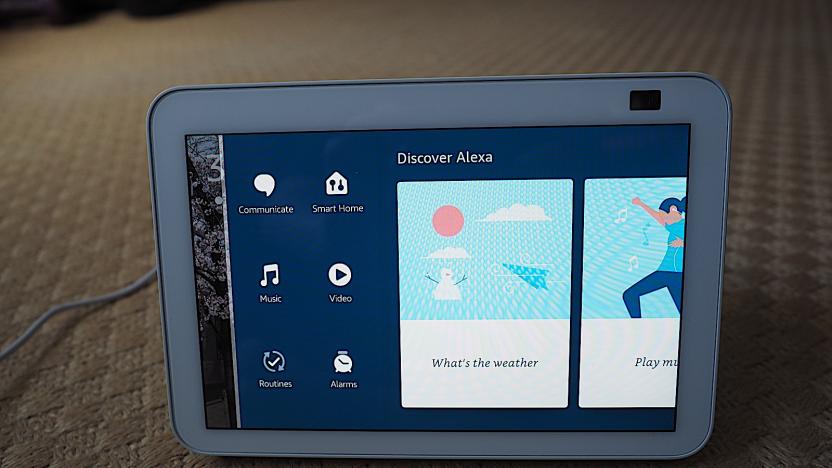
Amazon details custom Alexa programs for hospitals and retirement communities
Providers can manage their own version of the voice assistant through Alexa Smart Properties.
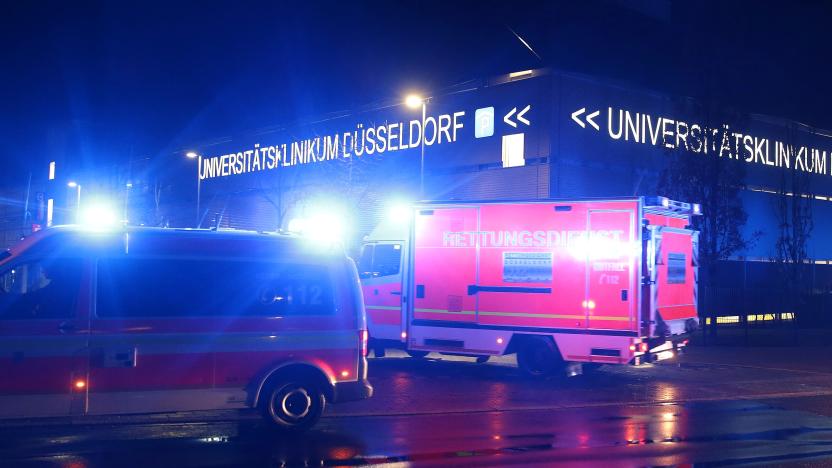
Ransomware may have led to the death of a German hospital patient
A patient has died after ransomware limited emergency services at a German hospital.
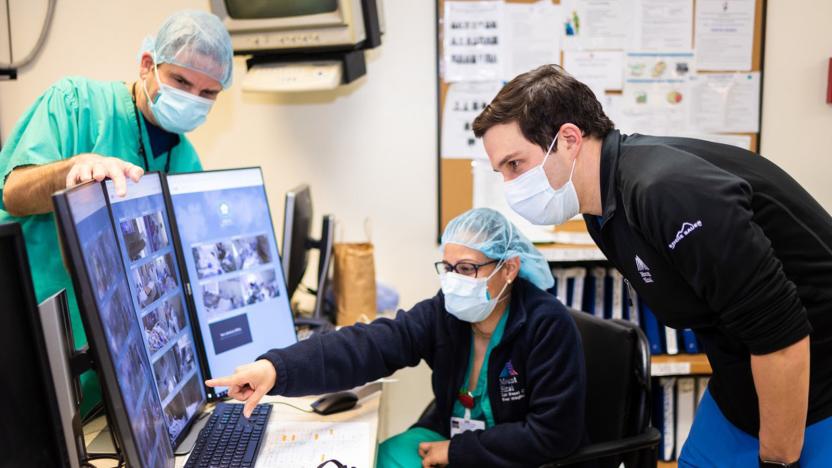
Google and Mount Sinai use Nest Cams to remotely monitor COVID-19 patients
Google and Mount Sinai have teamed up on a custom solution that lets a hospital monitor COVID-19 patients and their vitals with Nest Cams.
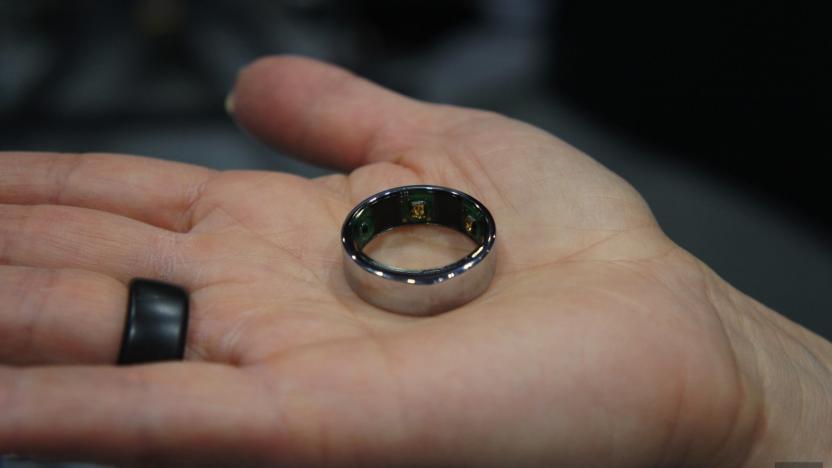
ER docs don smart rings to better predict COVID-19 infections
Some 2,000 emergency medical workers in San Francisco are tracking their temperature and other vitals with Oura's smart rings in an attempt to limit the spread of COVID-19, SF Chronicle reports. Oura and researchers from the University of California San Francisco (UCSF) hope to use that data to develop an algorithm that will predict the onset of COVID-19 and help contain the virus.

Stanford's new tech-laden hospital includes pill-picking robots
Technology only seems to find its way into hospitals in fits and starts. Stanford, however, is about to find out what happens when you build a tech-oriented hospital from the ground up. The university has opened a new hospital in Stanford Health Care's campus that aims to be as capable and connected as the phone in your pocket. You can control entertainment lighting and climate from a pad near your bed, while an updated MyHealth mobile app can help you contact a physician or guide you through the hospital's halls. However, the sheer automation of the hospital may be its real highlight.

Google is reportedly gathering health data on millions of Americans
Google is gathering detailed health record information from millions of Americans -- and it has not informed patients or doctors, The Wall Street Journal reports. According to WSJ, St. Louis-based Ascension, the second-largest health system in the US, is sharing lab results, diagnoses and hospitalization records, as well as health histories complete with patient names and dates of birth, with Google.

'Desert Bus' video game charity has raised nearly $80,000
Each year a group of selfless volunteers agrees to play what some call the world's most boring video game for hours on end in an attempt to raise money for the Child's Play hospital charity. Now in its 13th year, the Desert Bus for Hope fundraiser kicked off today. In its first five hours, it has raised nearly $80,000.
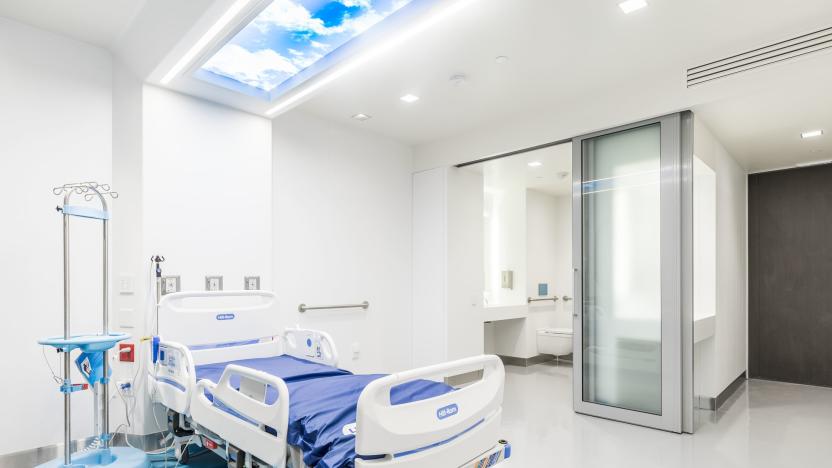
When the 'smart home' is actually a hospital room
You've surely gotten used to seeing Alexa in basically every piece of consumer technology out there -- Amazon is even putting it in microwaves. But Philadelphia-based startup EIR Healthcare has a new integration that managed to catch my eye: the company is selling hospital rooms with Alexa built right in. It's part of EIR's MedModular hospital room that was unveiled last October, something the company hopes will make hospital rooms "smarter" in a variety of ways beyond just Alexa.

Researchers trick radiologists with malware-created cancer nodes
Security researchers in Israel have developed malware that can add realistic-looking but entirely fake growths to CT and MRI scans or hide real cancerous nodules that would be detected by the medical imagining equipment. The software, designed by experts at the Ben Gurion University Cyber Security Research Center, was created to highlight the lax security protecting diagnostic tools and hospital networks that handle sensitive information.

A hospital in Japan will use robots to help out the night shift
In Nagoya, Japan, a city that once held an entire museum dedicated to robotics, a hospital will soon add robots developed by Toyota to its medical staff. No, they won't be scrubbing in for surgery: In February, the Nagoya University Hospital will deploy four bots to ferry medicine and test samples between floors for a year.

Lyft expands its non-emergency medical transportation services
Lyft has teamed up with Circulation to provide on-demand non-emergency medical transportation to over 1,000 healthcare facilities across the country. Circulation launched last year and it allows hospitals and other medical facilities to schedule one-time or recurring non-emergency transportation for their patients. It lets healthcare providers and patients request rides with options like wheelchair assistance, help getting into or out of the vehicle and whether a caregiver will need a ride as well. And depending when, where and what kind of ride is needed, Circulation matches patients with the best transportation option, which will now include Lyft.
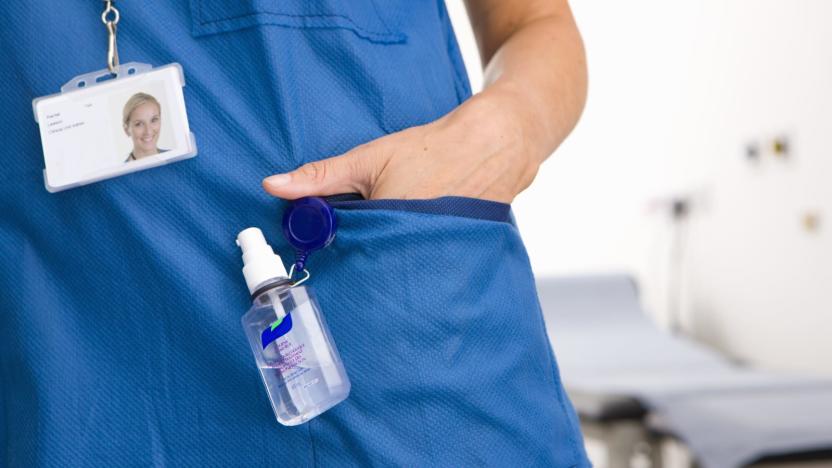
Researchers use AI to monitor hospital staff hygiene
Hospital-acquired infections are a pesky problem and around one in 25 hospital patients have at least one healthcare-associated illness at any given time. To combat this issue, a research team based at Stanford University turned to depth cameras and computer vision to observe activity on hospital wards -- a system that could be used to track hygienic practices of hospital staff and visitors in order to spot behaviors that might contribute to the spread of infection. The work is being presented at the Machine Learning in Healthcare Conference later this week.

UK hospital uses VR to reassure children before MRI scans
Entering a magnetic resonance imaging (MRI) machine can be a nerve-wracking experience. You're trapped in a tight space and have to lie perfectly still as loud noises -- produced by the current in the scanner coils -- pepper your eardrums. To help patients, and in particular children, the Kings College Hospital in London has turned to VR. MRI physicist Jonathan Ashmore and technologist Jerome Di Pietro have produced an app that contains a 360-degree video. Slip on a Google Cardboard and you'll see what happens on the day, from arrival to stepping inside the scanner.

NASA's Martian tech is helping hospitals eliminate bedsores
Bedsores, also known as pressure ulcers, kill more people annually than nearly any form of cancer, with 500,000 cases per year in the United Kingdom alone. One problem doctors and nurses face in the fight against bedsores is early detection -- traditionally, hospital staff can only diagnose pressure ulcers once they reach the skin's surface and have done irreparable damage. The SEM Scanner changes this. Using seismology technology adapted from NASA's Mars lander, the wireless, handheld, non-invasive scanner is able to detect bedsores up to 10 days before they show up on the skin.
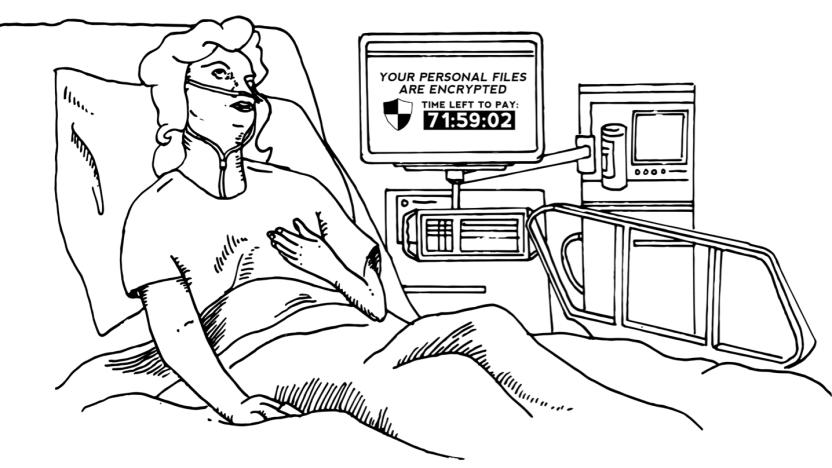
Hospital ransomware: A chilling wake-up call
If you had a loved one in the Hollywood Presbyterian Medical Center during its recent ransomware siege, would you be mad at the digital extortionists or the hospital? For me, the answer would be both. Hollywood Presbyterian declared a state of emergency over the ransomware on February 5th. The hospital issued a statement to press Wednesday evening on the 17th saying, "HPMC has restored its electronic medical record system ("EMR") on Monday, February 15th." The hospital isn't saying exactly when it paid the ransom, but it looks like they waited at least a week to end the file-hostage situation. Hollywood Presbyterian said its payment was 40 bitcoin, around $17K (not the 9K in bitcoin / $3.6 million initially reported).

Anonymous-linked hacker rescued at sea and then arrested
A purported member of online activist group Anonymous was arrested by the FBI in Miami after a Disney cruise ship rescued him and his wife from a sailboat near Cuba. As NBC reports, the FBI had been investigating Martin Gottesfeld since October 2014 for his possible involvement with Anonymous' cyberattacks against a Boston hospital.

Hospital paid hackers 40 bitcoins to get its network back
After more than a week of computer problems for Hollywood Presbyterian Memorial Medical Center, President & CEO Allen Stefanek announced (PDF) that it has decided to pay 40 bitcoins, or about $17,000 to fix the issue. The hospital's network was struck by ransomware on February 5th, and Stefanek's letter explained that the one his organization got hit by encrypted files and demanded money for an encryption key. Previous reports put the pricetag for access at $3.6 million, but the executive claims that is false, and the hospital chose the "quickest and most efficient way to restore our systems and administrative functions."

Hospital makerspace lets nurses build their own tools
Makerspaces are great for bringing your gadget ideas to life, but they're not usually much help to nurses who may want to invent (or improvise) tools needed to take care of their patients. That's where the University of Texas' new, permanent MakerHealth Space might just save the day. Nurses and other workers at the school's John Sealy Hospital now have a dedicated area with 3D printers, laser cutters and other equipment that lets them create or modify devices (say, a pill bottle sensor) without leaving work. The facility sterilizes and reviews every product before it's put into service, so you shouldn't have to worry about a risky tool ruining your hospital stay.

Light-based data transmission can replace wires in hospitals
It's not unusual to see patients in hospitals with wires sticking out of their bodies -- it's just something you expect, especially in ICUs. A group of South Korean researchers, however, believe there's a better alternative: lights. The team from Pukyong National University in Busan is suggesting the use of visible light-based communications or LiFi for some machines, according to IEEE. For instance, it could be used to transmit signals from an EEG, so a patient's head doesn't have to be tethered to an obscene number of wires.

FDA tells hospitals to ditch IV pumps that can be hacked remotely
The Food and Drug Administration "strongly encourages" hospitals to stop using Hospira's Symbiq Infusion System, because it's vulnerable to cyberattacks that would allow a third party to remotely control dosages delivered via the computerized pumps. Unauthorized users are able to access the Symbiq system through connected hospital networks, according to the FDA and the Department of Homeland Security's Industrial Control Systems Cyber Emergency Response Team. ICS-CERT reported the vulnerability on July 21st and the FDA released its own safety alert on Friday, July 31st. Thankfully, there are no reported incidences of the Symbiq system being hacked.












